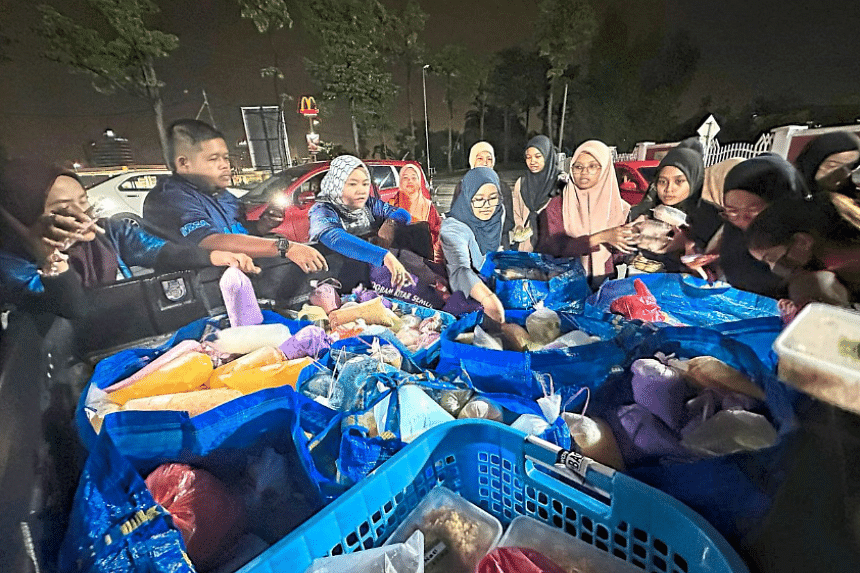SHAH ALAM, Selangor - With an ailing husband and a school-going teenager to look after, Ms Shahida Sudar is grateful for any help she gets during the fasting month, especially when it comes to receiving meals.
So every time the MySaveFood @ Ramadan Bazaar pickup truck stops at the Sri Melewar apartment building in the city of Shah Alam in Selangor, she will be queueing up, with other residents, to stuff her grocery bag with kueh, savoury snacks and the occasional chicken rice.
Like her neighbours, Ms Shahida, 61, takes just enough food for her family, knowing that others also depend on the initiative run by Shah Alam City Council (MBSA) since the start of the Ramadan fasting month.
“The food supplied helps me to save money and time as I don’t have to cook or buy as much this month,” Ms Shahida told The Star.
Every night after iftar (breaking of fast), 16 MBSA employees and 16 volunteers collect unsold food from three of Shah Alam’s biggest bazaars – Seksyen 13, Seksyen 17 and Seksyen 19 – and distribute it to nearby low-income households and student hostels.
Another stop is Politeknik Sultan Salahuddin Abdul Aziz, where the city council’s team invites students to collect food packets from the pickup truck.
“We are very grateful to MBSA for this service because as students, we don’t have much money, and we are always trying to stretch our allowance,” said student Muhamad Arif Ahmad Fahmi, 20.
Besides delivering the food packets to students, MBSA also leaves some outside the polytechnic’s Islamic centre for those performing terawih prayers.
So far this Ramadan, the MBSA team has collected food equivalent to more than 6,800 meals from about 200 stalls in the three bazaars, said MBSA employees when met at the Seksyen 13 bazaar.
A standard packet of chicken rice and kueh from these bazaars usually weighs around 1kg.
The team has so far collected 6,852kg of unsold food as at April 3, said MBSA deputy director Aiman Danial Pawan Chik.
This is the fourth year that the council is running the MySaveFood @ Ramadan Bazaar.
It has been so effective at reducing food waste that the Selangor government has ordered all local authorities to emulate it.
MBSA runs the programme every day along with volunteers from student groups, such as Harmoni Universiti Teknologi Mara and UiTM volunteer brigades, as well as youth groups Ikram Muda Shah Alam and Pemuda Gema Malaysia.
The team collects the extra food after iftar from the stalls, weighs what is collected and repackages it.
Stickers reminding recipients to consume the food within two hours are then affixed to each packet.
In Penang state capital of George Town, a queue usually forms at mosques such as Masjid Hashim Yahya in Jalan Perak as underprivileged residents wait their turn to receive the food donated from Ramadan bazaars.
One of them was a senior citizen who wanted to be known only as Mr Ali, 65.
He said the food provided by the mosque helped him save money during Ramadan.
“The mosque is popular among B40 families,” he said, referring to Malaysia’s bottom 40 per cent in income.
“If the food donated by the public or from the Ramadan bazaar finishes, then the mosque will cook food for us,” added Mr Ali.
Mr Ali, who resides near the mosque, said that during iftar, the food remained warm and fresh.
Besides the underprivileged community, foreigners also benefit from the donated food. THE STAR/ASIA NEWS NETWORK

